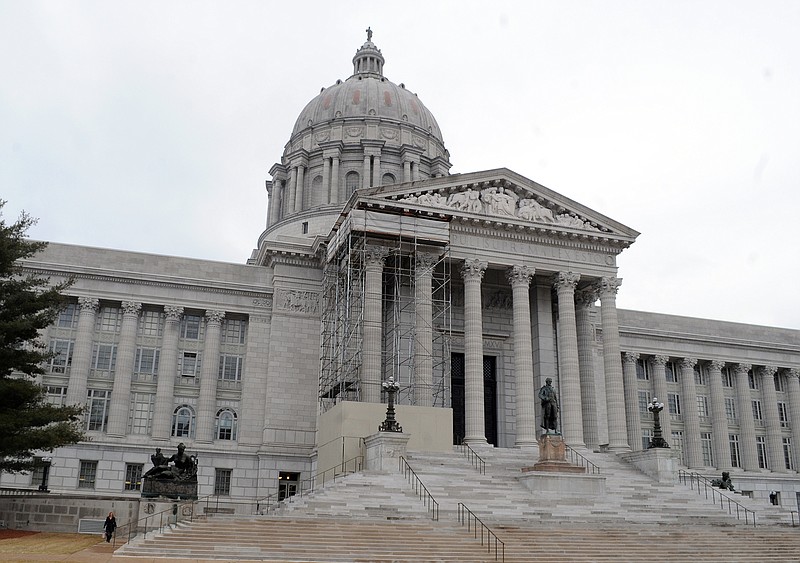The Missouri House and Senate agree state employees should get a $700 annual pay raise.
However, the two chambers differ on when that raise should begin.
And part of the problem, Senate Appropriations Chairman Dan Brown told reporters last week, is the potential for increases in what employees must pay for health care coverage through the Missouri Consolidated Health Care Plan (MCHCP).
"We were made aware, about 10 days ago, that Missouri Consolidated - which is health care for the state - was in a real crisis mode," Brown, R-Rolla, said Thursday. "And we actually put $61.2 million into that fund, to try to keep the cost of premiums as close to level as we can."
The Senate's version of the state budget plan for the 2018-19 business year that begins July 1 added $17 million to the MCHCP increase the House had already made, he said.
In January, the MCHCP Board looked at potential plan options for Fiscal Year 2019 - including some monthly premium changes (depending on which coverage plan the employee or retiree has chosen), and proposed increases in deductibles - from the current $300 a year to $750 for one PPO plan, and from the current $600 a year to $1,000 for a different PPO plan.
The proposal also looked at increasing emergency room co-pay charges from $100 to $200, raising co-pays on various levels of prescription medicines and doubling the co-pays for visiting specialists.
Judith Muck, MCHCP's executive director, said last week: "These are potential options as the Board has not made decisions yet.
"MCHCP will not perform plan year 2019 rate setting until the board makes its final decision on plan design, and we have several more months of actual claims experience for the actuary to consider."
Sen. Mike Kehoe, R-Jefferson City, said last week: "The money being put into MCHCP is a huge issue for state employees, because that was something out and about on the streets here that I heard a lot about, their premiums increasing.
"So, I appreciate the (Appropriations) committee did their best to try to keep those premium levels as flat as they could be."
Kehoe's seven-county Mid-Missouri district includes about 17,000 of the state's 55,000 employees.
Brown told reporters, while the additional money for MCHCP was aimed at holding the line on premiums, some lawmakers also "would like to put enough money in (so) there would be no change to the deductible portion - (but) we would have had to come up with another $46 million of general revenue, and it just wasn't there."
Brown added, "So, I apologize to state workers."
However, he noted, the increased deductibles still could have a drastic impact on the proposed pay increases.
And, in order to pay for the increased state aid for health care premiums, Brown said, "We had proposed, as a Senate, to start the pay raise in January (2019) rather than in July (2018).
"Now, when we meet with the House and we're talking about these issues, it's something we'll thrash through and see where everybody's at - and we'll probably get better numbers from the folks who run Consolidated."
In addition to the $700 a year pay raise, he said, some Corrections Department employees - Corrections Officers 1, 2 and 3, and some of their supervisors - would get a $1,400 annual increase under the Senate plan, "because they're extremely under-staffed, and we're losing a lot of people and a lot of folks who have a lot of experience."
Writing the state's budget each year is a balancing act, Brown said.
"The total budget for the state of Missouri is $28.65 billion - and the general revenue amount in there is $9.5 billion," he said. "We look at total dollars - (and House Budget Chairman Scott) Fitzpatrick and I are both willing to work really hard to get the best budget that Missouri could imagine, given the dollars we've got to work with."
Lawmakers still have two weeks to finalize the differences into one set of bills that can be sent to the governor for final approval.

